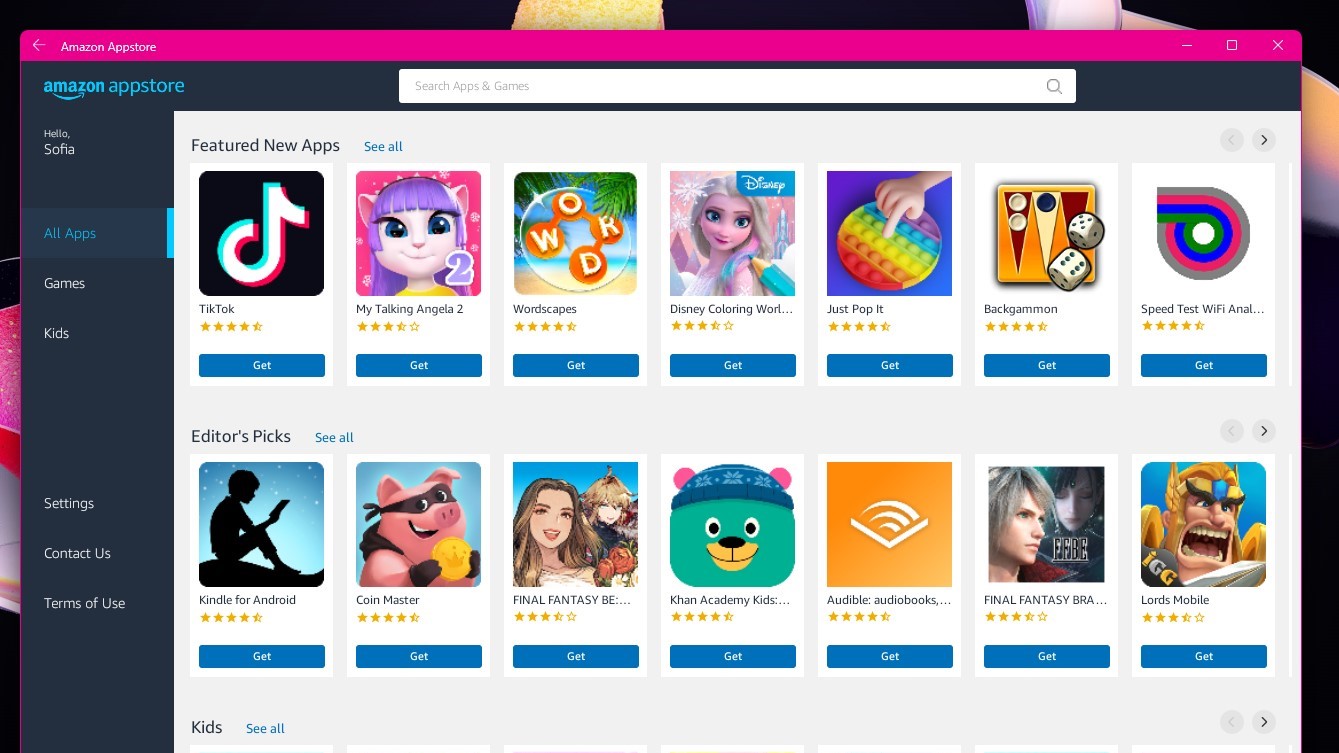Microsoft is axing support for Android apps, leaving users to search for other solutions
Windows is losing Android app support and users will need alternatives

Another week, another Microsoft feature bites the dust - support for Android apps and games in Windows is getting the chop. Starting next year, users will need a third-party alternative solution to run Android apps in Windows 10 and Windows 11.
This is because the official Windows Subsystem for Android (WSA) app, an official Microsoft app that enables Windows 11 to run Android applications natively, will no longer be supported and Windows users won’t be able to access the Amazon Appstore directly on Windows. Support for WSA is slated to end this time next year on March 5, 2025.
This news appeared in a notice added to the technical documentation for Windows Subsystem for Android. In this notice, Microsoft states that users can expect to access any Android apps they have installed this way (and from the Amazon Appstore) up until the date support is fully deprecated.
According to Android Authority, after March 5, 2025, users will not be able to access any Android apps that rely on WSA. It also seems reasonable to assume that after this date, users won’t be able to install the WSA app, or install any new Android apps from the Amazon store.

The impending reality for Android app fans
If you want to use an app that’s not on track to be deprecated or are looking for a replacement when March 5, 2025 rolls around, you can turn to unofficial third-party apps that will enable you to run Android apps on Windows.
If it’s just games for Android that you’re interested in, there is an official solution on offer from Google, Google Play Games, which makes hundreds of Android games able to be played on PCs running Windows 10 and Windows 11. Google Play Games is still in beta, but you can download it from the official website.
The death of WSA is very disappointing news from Microsoft and takes away options for how users can use their PCs, possibly a move made in the name of capping the visibility of competitors within Microsoft’s flagship operating system. This is purely in Microsoft’s interest and comes at the detriment of users’ choice, and will force users who want to run Android apps to find workarounds. One of the main appeals of Windows against competitors like ChromeOS and macOS is the flexibility and customizability of the operating system, and moves like this only serve to kneecap that selling point.
Sign up for breaking news, reviews, opinion, top tech deals, and more.
I assume Microsoft hopes this might drive these users to the Microsoft Store and consider getting Microsoft-issued apps instead, but the offerings of the Microsoft Store are something lacking. I hope that Microsoft has substantial plans to improve the Microsoft Store if it’s going to take away what was largely seen as a stable (and more or less straightforward) platform that expanded the apps available to users by a sizeable amount.
YOU MIGHT ALSO LIKE...
Kristina is a UK-based Computing Writer, and is interested in all things computing, software, tech, mathematics and science. Previously, she has written articles about popular culture, economics, and miscellaneous other topics.
She has a personal interest in the history of mathematics, science, and technology; in particular, she closely follows AI and philosophically-motivated discussions.